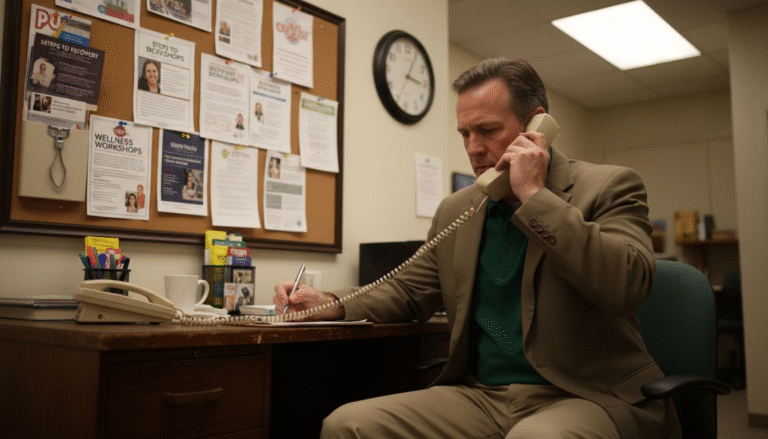Going through Xanax withdrawal is a very difficult and challenging experience. The symptoms can be unbearable, and knowing how to cope with them can be difficult. Fortunately, help is available. In this blog post, we’ll share some advice and support from Glendora Recovery Center, a compassionate and experienced team of professionals who have helped many people overcome Xanax addiction and withdrawal.
What Is Xanax?
Xanax (alprazolam) is a type of medication belonging to the benzodiazepine family, and it is widely used to treat conditions such as anxiety, panic attacks, and insomnia. It works by increasing the activity of certain neurotransmitters in the brain, which results in a calming effect on the user. However, Xanax can be habit-forming and should only be taken under medical supervision.
In some cases, people who have taken Xanax for extended periods of time may experience withdrawal symptoms when they try to stop taking it.
Symptoms include:
- Difficulty sleeping.
- Increased irritability or agitation.
- Sweating or trembling hands.
- Increased heart rate.
- Nausea or vomiting.
In sporadic cases, seizures can occur if someone stops taking Xanax suddenly.
It is essential to follow your doctor’s instructions if you are prescribed Xanax, and any changes to the dose should only be made under medical advice. It is also important to know the signs of withdrawal symptoms in order to get help if needed. If you think you may be experiencing Xanax withdrawal, speak to your doctor or a healthcare professional immediately.
At Glendora Recovery Center, we offer a variety of treatment options to help you manage your symptoms and begin the healing process. Our experienced team of professionals will work with you to create a personalized treatment plan that meets your needs and goals. But in the meantime, we are here to offer you some tips and information as you continue down your path toward recovery.
How to Take Care Of Yourself Physically and Emotionally
One of the most important things you can do to manage Xanax withdrawal is to take care of yourself physically and emotionally. This means eating healthy foods, getting enough sleep, and engaging in activities that you enjoy.
Physical Tips for Xanax Withdrawal
- Increase your water intake and stay properly hydrated. This will help flush out any toxins from your body and may ease symptoms such as headaches and dizziness.
- Make sure you’re getting adequate rest each night. Regular sleep patterns will help you manage stress levels and maintain energy throughout the day.
- Exercise regularly to reduce tension in your mind and body. Low-impact activities like walking or Yoga can be particularly beneficial during withdrawal periods.
- Eat nutritious meals that are high in vitamins and minerals to support your immune system. Avoid processed foods and stick to fresh fruits, vegetables, and lean proteins.
Emotional Tips for Xanax Withdrawal
- Spend time with family or friends who are supportive of your efforts to manage withdrawal symptoms. Socializing can be a great way to reduce stress levels and increase motivation to keep going.
- Utilize relaxation techniques such as deep breathing and mindfulness meditation when feeling overwhelmed by anxiety or other emotions associated with Xanax withdrawal.
- Be kind to yourself through this process.
- Try doing something creative like drawing, painting, or writing a poem.
Remember to celebrate the small victories each day and that you are strong enough to get through this difficult time. Try journaling the process, and remember that you are worthy of doing the things that you love! With a bit of self-care, patience, and perseverance, you’ll eventually reach the other side of withdrawal and reclaim your life. Good luck!
Medical Treatments Available to Alleviate Xanax Withdrawal Symptoms
In addition to self-care, several medical treatments are available that can help alleviate Xanax withdrawal symptoms. Commonly prescribed medications for treating Xanax withdrawal symptoms include benzodiazepines such as diazepam (Valium) or lorazepam (Ativan), antidepressants like fluoxetine (Prozac), and anticonvulsants such as pregabalin (Lyrica). In some cases, doctors may also prescribe antipsychotics, beta-blockers, or muscle relaxants to help manage the effects of Xanax withdrawal.
These medications should be used with caution since they can interact with other drugs and cause unwanted side effects. Additionally, they should only be taken under a doctor’s supervision and according to their instructions. For many patients, medications are part of a larger treatment program for Xanax withdrawal that may also include lifestyle changes, counseling, and support groups. Ultimately, the goal is to help patients manage their symptoms and lead more fulfilling lives.
It’s also important to keep in mind that recovering from Xanax addiction and withdrawal is a process. Don’t get discouraged if there are setbacks along the way. Stay positive and stay focused on your goals because they are pointing you toward a new path and doorway. Practice patience and understand that the journey is not going to be linear. At Glendora Recovery Center, we aim to illuminate your path toward success. We offer ongoing support and education to help keep you on track and maintain your sobriety. Our professionals are also equipped to offer full service full and partial hospitalization programs that are specialized for your journey.
Contact Glendora Recovery Center & Begin Your Recovery Journey Today
Xanax withdrawal can be a complicated and overwhelming experience, but knowing you’re not alone is essential. Help is available, and recovery is possible. You can do this! You are already here doing the research, and your new life awaits.
At Glendora Recovery Center, we’re here to support you every step of the journey towards a life of sobriety. Whether you need at home, or inpatient medical treatment, emotional support, or guidance on your journey to recovery, we’re here to help. We offer aftercare and continuing support as well as full medical support and attention during your recovery process. You are not alone, reach out to us today to learn more about how we can help you overcome Xanax addiction and withdrawal. Let’s move forwards toward abundance and success together.



